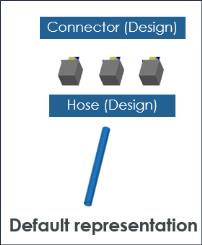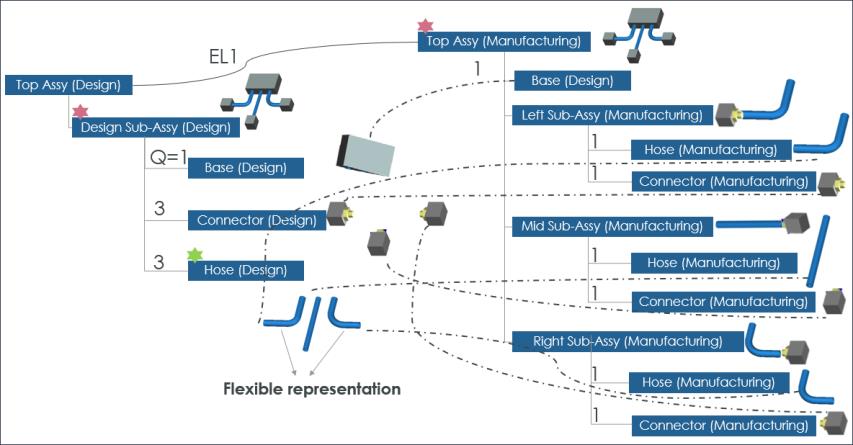


 in the diagram. The Hose part, which is not bent in the default representation, is represented as bent in the context of Design Sub-Assy. However, Design Sub-Assy does not have an equivalent part on the downstream side. As the Top Assy part on the upstream and the downstream sides is a common equivalent context for both the structures, the information related to the flexible feature is stored in the Top Assy part on the downstream side. Therefore, whenever you try to update a flexible part, Top Assy gets checked out.
in the diagram. The Hose part, which is not bent in the default representation, is represented as bent in the context of Design Sub-Assy. However, Design Sub-Assy does not have an equivalent part on the downstream side. As the Top Assy part on the upstream and the downstream sides is a common equivalent context for both the structures, the information related to the flexible feature is stored in the Top Assy part on the downstream side. Therefore, whenever you try to update a flexible part, Top Assy gets checked out.There are known limitations in the flexible assembly feature in Windchill 12.0.1.0 release. The feature will be improved in a future release. • The Process Plan Browser does not support manufacturing context for the flexible assembly feature. • The feature does not support image association of parts. • There might be some issues with the position of a child part, where its absolute position is calculated by multiplying its relative position with the position of its parent parts in the hierarchy above the part that holds the flexible assembly feature. • Reference operated on the part shows correct representation only when the part is not allocated in the Occurrence mode in Process Plan Browser. • When there is no change in geometry for the flexible assembly feature on the upstream side, reconciliation assistance may still detect a change in flexible representation. You can choose to resolve this discrepancy by comparing visualization on the upstream and downstream sides. • When updating the downstream structure using the Generate Downstream Structure, Synchronize Structure Associativity, New Alternate BOM, or Duplicate action, updates detected in the flexible representation of parts are not maintained in the downstream structure. |